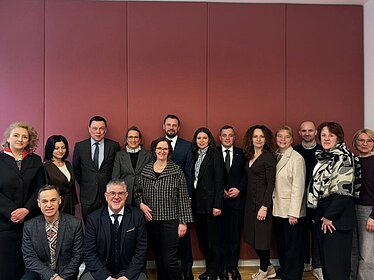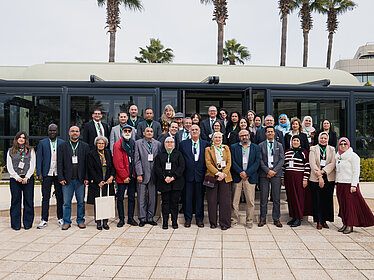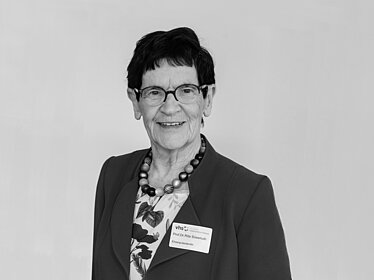
Mexico
DVV International’s work in Mexico began in 1993 with a national office, which has been serving as a regional office for Central America since 2000.
Adult Learning and Education (ALE) in Mexico faces numerous challenges, including a lack of resources, inadequate infrastructure, geographical barriers and the low quality of educational programmes. Women, indigenous people, migrants and people with disabilities in particular are often excluded from ALE programmes, and low-income families can barely afford the fees. According to a national survey, 49.3% of the population aged 15 and over had only completed primary school by 2023.
Public policies focus on literacy, basic education and vocational training, while other forms of ALE are largely neglected. Moreover, there is a lack of reliable and consistent coordination between non-formal youth and ALE and the formal education system.
As part of its mission, DVV International, in cooperation with partners, has established dialogue forums and specialist networks for ALE and promoted cross-border exchange on ALE policies. These processes are supported by advocacy and lobbying activities at the national level, which are carried out in cooperation with Latin American education networks such as CLADE and REPEM.
Main focus of work
- Policy advice: The concept of migration-education-development is integrated into the public policies of Mexican youth and ALE, with a focus on topics such as gender, the environment, intercultural education and in-service training programmes. Another focus is on the implementation of international agreements of the 2030 Agenda (SDG 4) and the resolutions of the World Conference on Adult Education (CONFINTEA VII) from the Marrakesh Plan of Action.
- Sustainable professionalisation of ALE providers and actors: These measures focus on management, inclusion (gender) and environmental education in line with curricula developed by DVV International, such as the Curriculum managerALE and the Curriculum globALE. The latter is being adapted and introduced at local universities as a new further education programme. Inclusive education programmes are being developed and piloted in cooperation with local specialist networks and partners, thereby improving the range of programmes offered by local education providers. With the creation of a learning website and app (www.EducALE.mx), there are further online learning opportunities for lecturers, trainers and an interested specialist audience. In addition, environmental education will be supplemented in future by the new ambientALE curriculum, which is based on the experiences with the sub-project in Cuba, completed in 2024.
- Educational programmes for disadvantaged groups: The central aim of the work with education providers and target groups is to improve educational opportunities and sustainable development, particularly for women, indigenous people and migrants in the Mexico/Guatemala border region. The programmes created or expanded promote the active participation of these groups in economic and social life. A particular focus is on developing the southern state of Chiapas as a model region, in close cooperation with partners in Guatemala.
Partners
DVV International works with a large number of civil society partners, including the non-governmental organisations Pronatura Sur A.C. and Colectivo Feminista Casa de Apoyo a la Mujer Ixim Antsetic A.C. (CAM), the Red EPJA network and the cross-border university association ADT. The main government partners are the Instituto Nacional de Educación de Adultos, the Instituto Chiapaneco de Educación de Jóvenes y Adultos, the Instituto de Educación de Adultos Tabasco and the Instituto de Educación de Adultos Quintana Roo. Other partners are the Regional Ministry for Gender Equality of the State of Chiapas (SEMUIGEN) and the CREFAL (Centro de Cooperación Regional para la Educación de Adultos en América Latina y el Caribe) based in Pátzcuaro. In the university sector, DVV International cooperates with the Universidad Autónoma Metropolitana, the Universidad Autónoma de Chiapas and the Universidad Juárez Autónoma de Tabasco. Since 2025, DVV has been a member in the Latin American university network RECLA (with 130 universities) for cooperation in expert commissions and to increase advocacy work for ALE.





